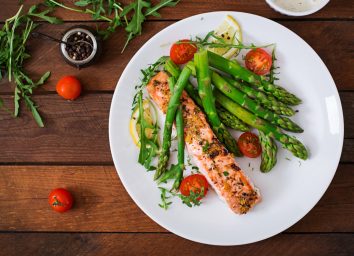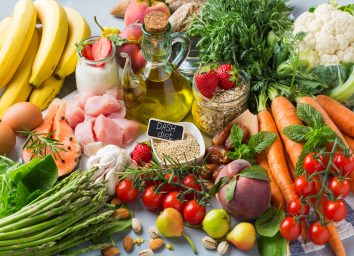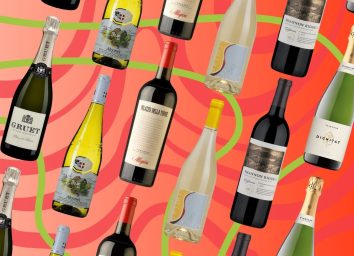5 Drinking Habits That Could Be Secretly Increasing Your Blood Pressure

As you age, you may be someone who experiences fluctuations in your blood pressure. High blood pressure, also called hypertension, happens when your blood puts too much pressure on the walls of your arteries over an extended amount of time, which can lead to potentially dangerous consequences for your health, including increasing your risk for Alzheimer's, stroke, and more. If you have been told by a doctor that you have high blood pressure and need to find ways to lower it, there lifestyle changes you can make that may help, including managing your weight, exercising regularly, getting adequate sleep, reducing stress when you can, and giving up cigarettes. Additionally, being mindful of the food and drinks you consume can play a role in regulating your blood pressure.
Known in the medical community as "the silent killer," there are many items that may be raising your blood pressure without you even realizing it. Although watching what you eat (i.e., avoiding salt and ultra-processed foods) are obvious potential solutions to lowering your blood pressure, even certain drinks can impact your blood pressure levels and increase your chances of developing chronic hypertension, too. That's why, if you're blood pressure reading are consistently high, it's equally as important to pay attention to the drinks you consume on a regular basis in addition to being mindful of what you eat.
To learn more about how drinks can potentially impact your blood pressure and find out which drinking habits are a setup for high blood pressure, we spoke with a few expert dietitians about the worst drinking habits for your blood pressure. And, right now is the perfect time to focus on your heart health because February is National Heart Month! So, read on to learn how you can care for your heart this month and every month to come by changing a few simple drinking habits that affect your blood pressure.
Consuming too much alcohol
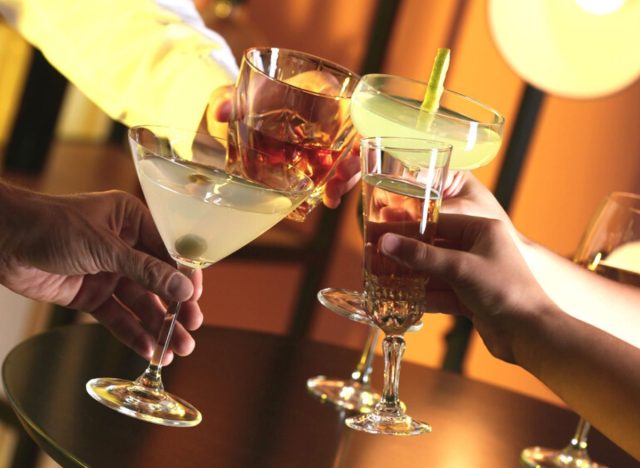
If you're someone who struggles with high blood pressure, you may want to limit how much alcohol you're consuming. According to the Mayo Clinic, having more than three drinks per day can increase your blood pressure temporarily, and binge drinking on a regular basis can more permanently raise your blood pressure levels.
According to research from the American College of Cardiology presented at their 68th Annual Scientific Session, drinking anywhere between seven and 13 drinks per week was associated with an increase in blood pressure in over 17,000 adults.
Drinking sugary drinks
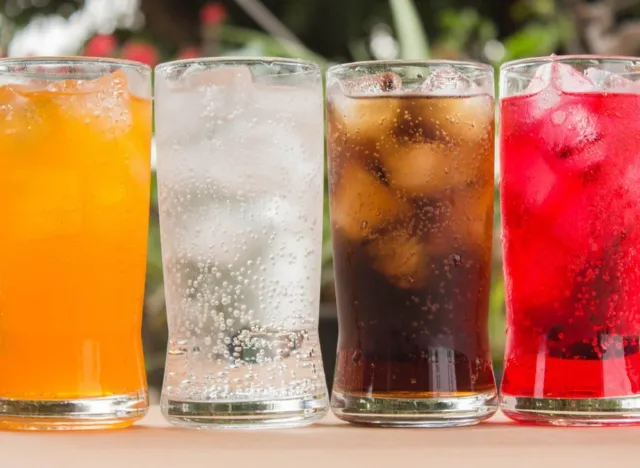
According to our dietitians, drinking sugary beverages such as soda or juices with a lot of added sugar can negatively impact your blood pressure levels.
"Drinks high in sugar increase arterial blood pressure and can be dangerous for hypertensives. For this reason, avoiding juices that everyone loves so much is recommended. Most of them are high in sugar, which stimulates the production of bad cholesterol, and puts you at risk for diabetes and heart disease," says Edibel Quintero, RD, registered dietitian and medical content author at Health Reporter.
One review from the American Journal of Cardiology concluded that, based on the research studies they investigated, sugar-sweetened beverages were associated with higher levels of blood pressure, which, in turn, often led to increased incidence of hypertension.
Having energy drinks
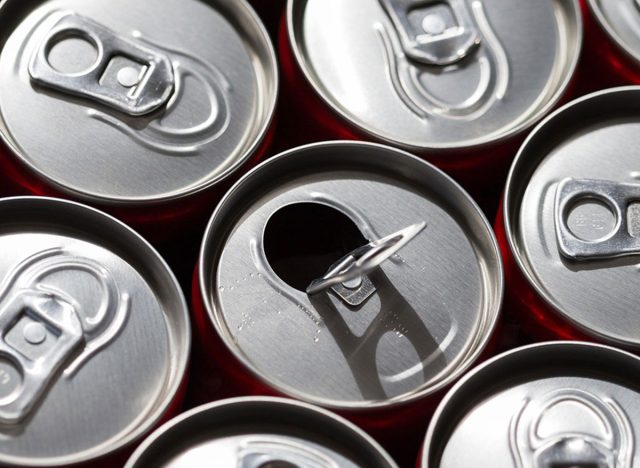
Another drinking habit that may negatively impact your health and hypertension risk is drinking too many energy drinks on a regular basis.
"Several studies have shown that energy drinks can cause hypertension. One reason is the caffeine in energy drinks can cause your blood pressure to rise," says Lindsay Delk, RDN, registered dietitian nutritionist and owner Food and Mood Dietitian. "Drinking energy drinks daily can cause even higher blood pressure than drinking one occasionally. And energy drinks should never be combined with alcohol."
Not drinking milk
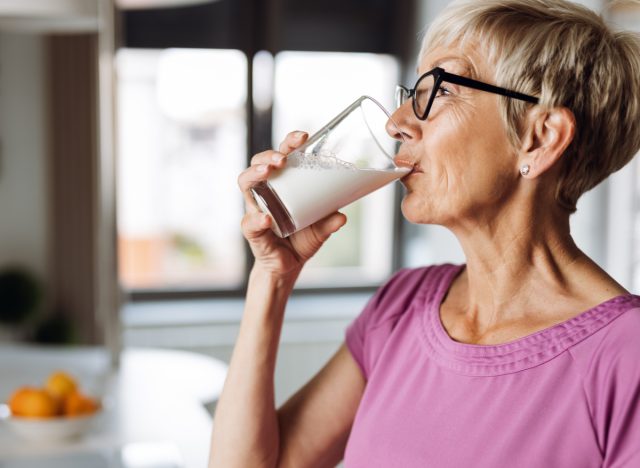
This one may sound strange, but milk is actually a helpful drink for blood pressure.
"Research shows that your risk of high blood pressure decreases as you drink more dairy. So, you will lose this benefit if you are not drinking any milk. Aim for 2 to 3 servings of dairy each day," says Delk.
In a June '22 study published in Nutrients, it was also found that consuming low-fat dairy on a regular basis was associated with a reduced incidence of hypertension in both men and women.
RELATED: 4 Worst Meats for Blood Pressure
Drinking too much coffee

Lastly, drinking too much coffee can have a negative impact on your health and hypertension risk.
"Drinks containing caffeine, like tea, coffee, energy drinks, and some sodas, can increase blood pressure. It is not entirely clear why this happens, but studies have shown that caffeine intake causes a measurable increase in blood pressure. These effects of caffeine are more short-term, meaning that blood pressure rises relatively quickly after drinking a caffeinated beverage. This side effect of caffeine may or may not last long-term and depends on several factors, including how often someone is drinking caffeine and how much they are drinking," says Vincenza Zurlo, MS, RD.
If you're a coffee lover with high blood pressure, you may not need to give it up entirely. However, talk with your doctor first about how much you're able to drink before potentially harming your health and contributing to higher blood pressure levels.
A previous version of this story was published on June 15, 2022. It has been updated to include additional copy and proofreading revisions, additional research, and updated contextual links.
- Source: https://www.mayoclinic.org/diseases-conditions/high-blood-pressure/expert-answers/blood-pressure/faq-20058254
- Source: https://www.sciencedaily.com/releases/2019/03/190307081024.htm
- Source: https://www.ajconline.org/article/S0002-9149(14)00639-0/fulltext
- Source: https://www.ncbi.nlm.nih.gov/pmc/articles/PMC5714807/
- Source: https://academic.oup.com/advances/article/8/6/793/4772207?login=true

